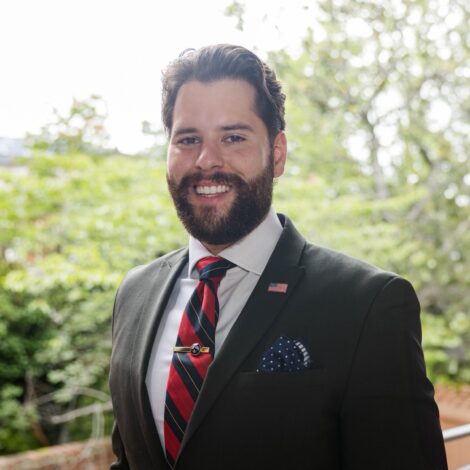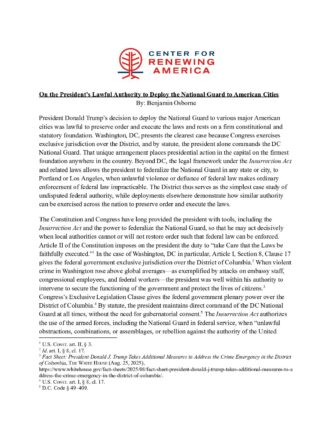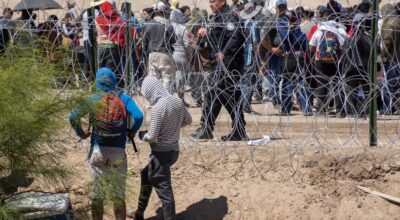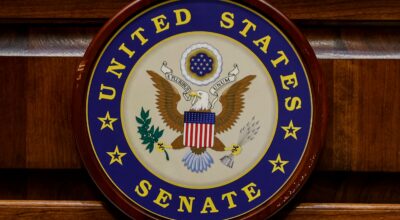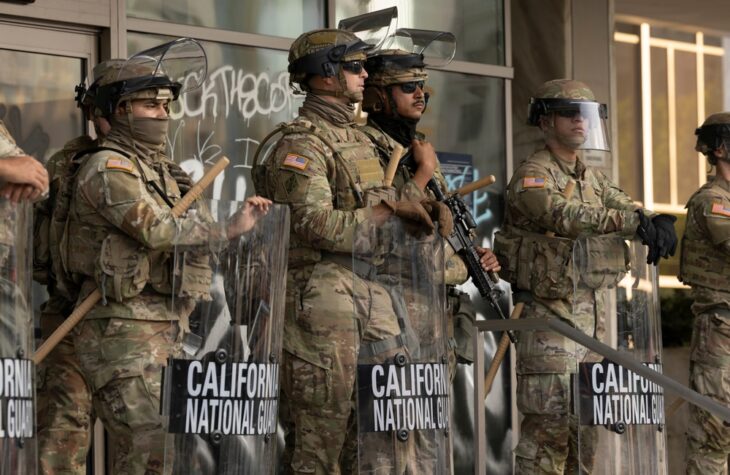
On the President’s Lawful Authority to Deploy the National Guard to American Cities
President Donald Trump’s decision to deploy the National Guard to various major American cities was lawful to preserve order and execute the laws and rests on a firm constitutional and statutory foundation. Washington, DC, presents the clearest case because Congress exercises exclusive jurisdiction over the District, and by statute, the president alone commands the DC National Guard. That unique arrangement places presidential action in the capital on the firmest foundation anywhere in the country. Beyond DC, the legal framework under the Insurrection Act and related laws allows the president to federalize the National Guard in any state or city, to Portland or Los Angeles, when unlawful violence or defiance of federal law makes ordinary enforcement of federal law impracticable. The District thus serves as the simplest case study of undisputed federal authority, while deployments elsewhere demonstrate how similar authority can be exercised across the nation to preserve order and execute the laws.
The Constitution and Congress have long provided the president with tools, including the Insurrection Act and the power to federalize the National Guard, so that he may act decisively when local authorities cannot or will not restore order such that federal law can be enforced. Article II of the Constitution imposes on the president the duty to “take Care that the Laws be faithfully executed.”1 In the case of Washington, DC in particular, Article I, Section 8, Clause 17 gives the federal government exclusive jurisdiction over the District of Columbia.2 When violent crime in Washington rose above global averages—as exemplified by attacks on embassy staff, congressional employees, and federal workers—the president was well within his authority to intervene to secure the functioning of the government and protect the lives of citizens.3 Congress’s Exclusive Legislation Clause gives the federal government plenary power over the District of Columbia.4 By statute, the president maintains direct command of the DC National Guard at all times, without the need for gubernatorial consent.5 The Insurrection Act authorizes the use of the armed forces, including the National Guard in federal service, when “unlawful obstructions, combinations, or assemblages, or rebellion against the authority of the United States” make it impracticable to enforce federal law by ordinary judicial means.6 The Posse Comitatus Act, which purportedly bars direct use of the military in law enforcement, contains an explicit exception for actions authorized “by the Constitution or Act of Congress,”7 an exception satisfied by the Insurrection Act and by Congress’s unique delegation of authority over the District.
The governing policy is straightforward: When unlawful violence makes ordinary enforcement of federal law impracticable, the president has authority to use the militia or armed forces to ensure the federal laws can be enforced. The Insurrection Act expressly allows this,8 and the Posse Comitatus Act does not forbid it. In Washington, local authorities had lost control, creating a crisis where only decisive federal intervention could secure peace. Far from being extraordinary, this use of federal authority is consistent with the longstanding principle that the president may act when disorder obstructs the execution of federal law and endangers the safety of the republic.9
The following key points describe why the use of the National Guard in DC was lawful and appropriate:
- Constitutional Duty: The president is constitutionally obligated to ensure that the laws are executed and that the seat of government remains secure.10
- Crisis in Washington: Murders of foreign embassy staff, attacks on federal workers, and violent crime rates higher than global capitals showed that ordinary enforcement had failed or had been abandoned for political reasons.11
- Statutory Authority: The Insurrection Act authorizes the president to use the militia or armed forces when unlawful violence obstructs enforcement of the law or deprives citizens of rights,12 and the president is the commander in chief of the DC National Guard.13
- Posse Comitatus Exception: The Posse Comitatus Act does not strip the president of this power; it expressly preserves all other constitutional and statutory authority to act.14
- Appropriateness: The nation’s capital is a showcase of our country; the federal government cannot function if its workers are unsafe in the capital. Protecting them ensures the continuity of governance, preserves national security, and shows other locations and cities the significance of protecting and enforcing federal law.
- Results: Following the deployment, crime dropped significantly—robbery fell 46 percent, carjacking 83 percent, and violent crime 22 percent—showing in just a few days the effectiveness and necessity of the intervention.15 DC Mayor Bowser, a long time critic of President Trump, said she “greatly appreciate[d] the surge of officers” that “enhance[d] what MPD has been able to do in this city” in regard to reducing crime, especially carjackings.16
Deploying the National Guard Outside DC
The president’s lawful authority to deploy the National Guard extends beyond DC. In June 2025, President Trump directed the secretary of defense (now secretary of war) to provide military support, including the activation of the National Guard, for the protection of Department of Homeland Security functions in Los Angeles.17 Citing his authority under 10 U.S.C. §§ 251–52 and the Take Care Clause of Article II, Section 3 of the Constitution, the president acted to quell civil unrest, enforce immigration laws, and restore order where local authorities failed or refused to do so.18 The president’s power to federalize the National Guard under 10 U.S.C. § 12406 is used when unlawful obstructions prevent the execution of federal law.19 The same legal authority applies to other places such as Portland, Memphis, or Chicago, cities where persistent violent crime and defiance of federal immigration statutes create an ongoing crisis that obstructs the enforcement of national law.
On September 15, 2025, President Trump ordered the use of National Guard forces in Memphis to protect federal facilities and personnel amid high levels of crime.20 The White House directed the Secretary of War to coordinate with the Governor of Tennessee to place Guardsmen on duty under 32 U.S.C. § 502, which authorizes training and “other duty” for the Guard at federal expense while under state control.21 This framework, “Title 32 status,” enabled the Guard to support federal missions in Memphis without full federalization under Title 10, which was used elsewhere. This approach can be used in states where the governor is willing to cooperate with the president, which was the case for Tennessee, but not in California, Oregon, or Illinois.
On September 28, 2025, President Trump, following the same actions he took in Los Angeles, directed the federalization of 200 members of the Oregon National Guard, deploying them to Portland for 60 days to protect federal property and personnel involved with enforcing federal immigration laws.22 As in Los Angeles, the president rested his authority on 10 U.S.C. § 12406 and the Insurrection Act.
Conclusion
The president has acted within his lawful authority to preserve order by calling the National Guard to cities across the country. His actions are not an expansion of power but faithful executions of constitutional duty and statutory authority, taken in response to crises that leave no alternative but federal intervention. When mayors across the country failed to enforce their own laws—including to protect federal officials—the president stepped in, and our communities are now safer because of it.
Endnotes
1. U.S. Const. art. II, § 3.
2. Id. art. I, § 8, cl. 17.
3. Fact Sheet: President Donald J. Trump Takes Additional Measures to Address the Crime Emergency in the District of Columbia, THE WHITE HOUSE (Aug. 25, 2025), https://www.whitehouse.gov/fact-sheets/2025/08/fact-sheet-president-donald-j-trump-takes-additional-measures-to-address-the-crime-emergency-in-the-district-of-columbia/.
4. U.S. Const. art. I, § 8, cl. 17.
5. D.C. Code § 49–409.
6. 10 U.S.C. §§ 252–54.
7. 18 U.S.C. § 1385.
8. 10 U.S.C. § 252–54.
9. Ken Cuccinelli & Adam Turner, Policy Brief: The U.S. Military May Be Used to Secure the Border, CTR. FOR RENEWING AM. (Mar. 25, 2024), https://americarenewing.com/issues/policy-brief-the-u-s-military-may-be-used-to-secure-the-border/.
10. U.S. Const. art. II, § 3; art. I, § 8, cl. 17.
11. Fact Sheet: President Donald J. Trump Takes Additional Measures to Address the Crime Emergency in the District of Columbia, THE WHITE HOUSE.
12. 10 U.S.C. § 252–54.
13. D.C. Code § 49–409.
14. 18 U.S.C. § 1385.
15. Fact Sheet: President Donald J. Trump Takes Additional Measures to Address the Crime Emergency in the District of Columbia, THE WHITE HOUSE.
16. Rebecca Shabad, Mayor Muriel Boswer says Trump’s surge of federal law enforcement has lowered crime in D.C., NBC NEWS, (Aug. 27, 2025), https://www.nbcnews.com/politics/politics-news/bowser-trump-police-takeover-lower-dc-crime-national-guard-ice-rcna227582.
17. Memorandum on Dep’t of Def. Support for the Protection of Dep’t of Homeland Sec. Functions, THE WHITE HOUSE (June 14, 2025), https://www.whitehouse.gov/presidential-actions/2025/06/department-of-defense-security-for-the-protection-of-department-of-homeland-security-functions/.
18. Id.
19. 10 U.S.C. § 12406 (showing “the President may call into Federal service members and units of the National Guard of any State in such numbers as he considers necessary to . . . execute those laws”).
20. President Donald J. Trump, Memorandum for the Sec’y of the Treasury, the Sec’y of War, the Att’y Gen., & Other Senior Officials, Restoring Law and Order in Memphis (Sept. 15, 2025), https://www.whitehouse.gov/presidential-actions/2025/09/restoring-law-and-order-in-memphis/.
21. Id.; 32 U.S.C. § 502(f).
22. President Donald J. Trump, Memorandum for the Sec’y of Def., Att’y Gen., & Sec’y of Homeland Sec., Dep’t of Def. Security for the Protection of Dep’t of Homeland Sec. Functions, (June 7, 2025), https://www.opb.org/pdf/SecWar%20Memo%20to%20OR_28SEP25_1759111169994.pdf.; Sec’y of War, Memorandum for the Adjutant Gen., Oregon Nat’l Guard, Calling Members of the Oregon Nat’l Guard into Fed. Serv. (Sept. 28, 2025), https://www.opb.org/pdf/SecWar%20Memo%20to%20OR_28SEP25_1759111169994.pdf.

